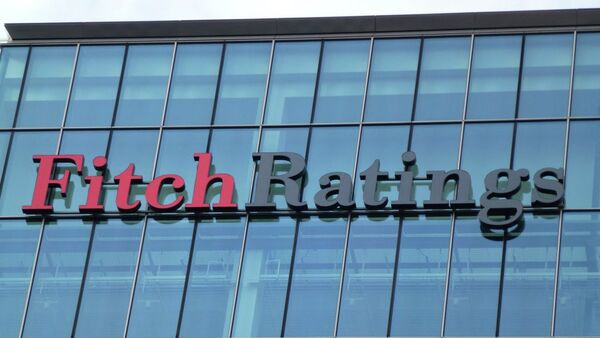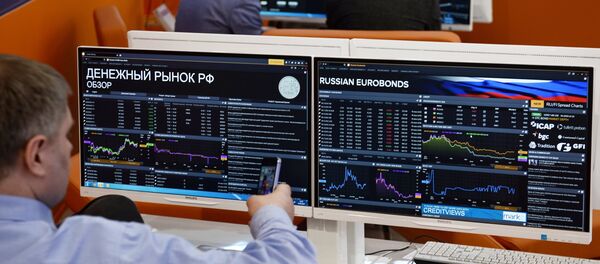"We assess the capability of a country to fulfil its debt obligations. Russia has a low level of debt, a strong external trade balance, state financial assets, and international reserves in the Central Bank and Finance Ministry's reserve fund," said Seville in an interview with Deutsche Welle.
Seville explained why Fitch decided to lower Russia's sovereign investment rating from BBB to BBB- in January 2015, the agency's lowest investment-grade rating. Other countries with the same rating include Turkey, Romania, India, Uruguay and Morocco.
Following Fitch's assessment, in January Standard and Poor's cut Russia's credit rating to BB+, a 'junk rating,' which denotes speculative investments. Ratings agency Moody's followed suit in February, and downgraded Russia's rating to Ba1, the highest non-investment grade.
"At the beginning of the year, we lowered Russia's rating, with a negative outlook. That reflected the considerable risks there were, and which remain. They are connected with sanctions, the price of oil, and financial instability."
"However, we also see Russia's strengths. For example, the change to a floating exchange rate has helped it withstand the current crisis. I think the most negative predictions have failed to materialize."
"This is really a balance of positive and negative factors. But if we compare Russia with other countries, I think it doesn't look like country with a non-investment rating."
Regarding the economy's future, Seville said the worst decline has passed, but Russia's return to good economic health will depend on a number of factors.
"In the next year, the population's buying power will remain low, so consumption is unlikely to be a source of economic growth," said the analyst.
Rather than consumer spending, said the analyst, growth should come from the private sector, by exploiting the benefits of the ruble's devaluation to increase investment, and enable longer term growth.




